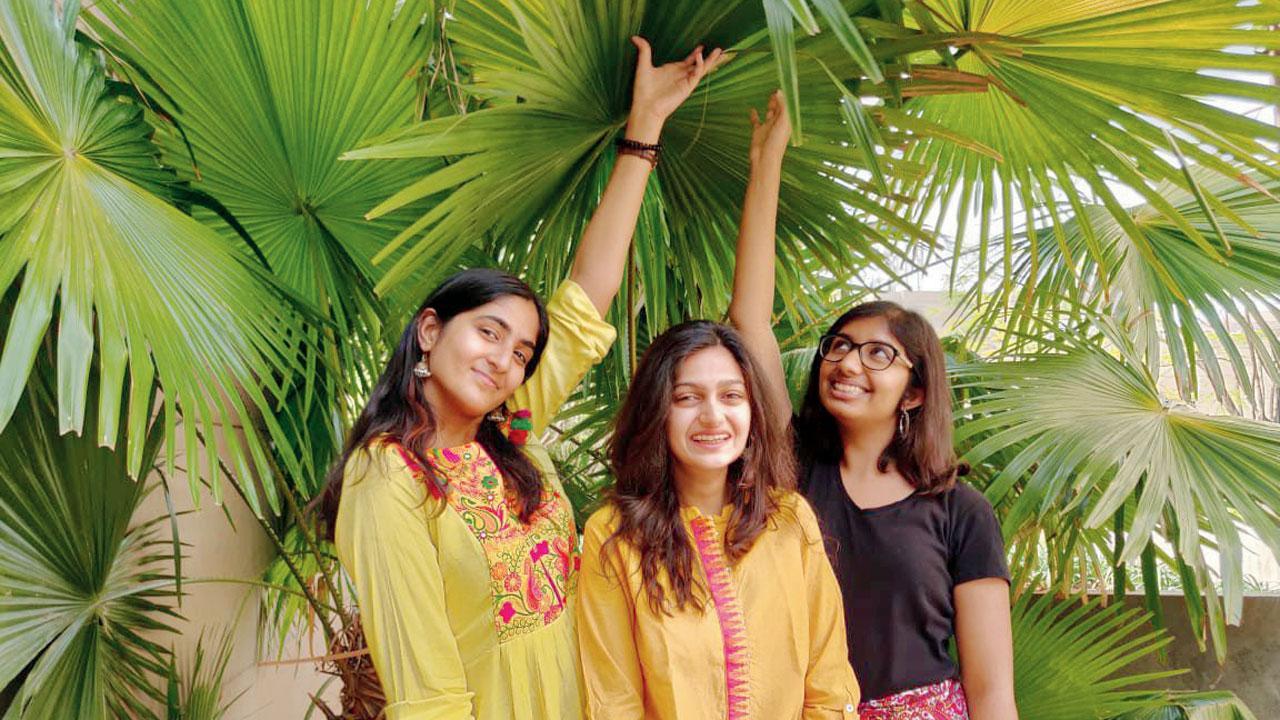Three students from a Pune-based college have created a digital repository of desi cookbooks and oral culinary traditions.

Muskaan Pal, Khushi Gupta and Ananya Pujary
In their first year at Pune’s FLAME University, when classmates Ananya Pujary, Muskaan Pal and Khushi Gupta were tasked with a project for their digital humanities course, they decided to dip into Pujary’s Mangalorean roots for inspiration. “Initially, I thought of creating a repository of recipes from Mangalore, specifically of the Tuluva people. I realised that my community has strong oral traditions, but not a lot of written documentation, which is important to continue the transfer of knowledge,” Pujary shares, adding that while growing up abroad, food was a means to create a sense of belonging.
An edition of the Bengali cookbook Pak-Pranali (1883-1906)
However, while researching, the trio realised that proper documentation was lacking not just in the case of the Tuluva people, but also several other communities in India. “We found this strange, since food constitutes a huge part of cultural identity, and in a country as diverse as India, culinary traditions are bound to vary across classes, castes, religions and regions,” she adds. That’s when the three students decided to adopt a pan-India approach, and developed the online repository, Indian Community Cookbook Project.
The open-access archive of community-specific cookbooks, recipes and culinary traditions was set up in 2019, but it’s only now that they have managed to build a sizable collection. From hand-written notes on how to concoct fish Ranchod, a Mangalorean dish, to Naga recipes like dried axone pork and rosup that the trio acquired through Instagram exchanges with the cast of the film Axone — the website is a treasure trove of vibrant desi fare and the many influences it represents. In an age where recipes are bottled into 15-second videos, making sense of the scribbled notes on Sindhi delicacies including dhingri, a mushroom-peas-potato gravy, or scrolling through the Marathi cookbook Panchalichi Thali, reminds us in a way of the days when we’d race to jot down chef Sanjeev Kapoor’s recipes as he’d smile away on the TV monitor.
The Goan Cook’s Guide (1926)
The website is divided into three sections. “There’s the archives section, where we’ve documented recipes passed down orally among families or communities. It also includes hand-written recipes and excerpts from family cookbooks,” explains Pal. The team has also worked on timelines of cuisines including Goan, Bengali, Anglo-Indian and Tamil, chronologically mapping published cookbooks up till the 1990s’ era of commercialisation.
The archive comprises recipes collected from family cookbooks, publications as well as those passed down orally Bagara baingan from the Bangalore-Muslim cuisine
“There’s also a modern cookbook story section, where we’ve created a map of contemporary cookbooks across India,” Pal adds. This three-pronged approach to documenting culinary traditions has helped them to critically engage with their collection. “We looked at whether the collection reflects socio-economic influences, what role food plays in shaping identity, the politics of inclusion and exclusion, and so on,” Gupta tells us. For example, they point out that if one were to browse the Bengali cuisine timeline, one can see that the first printed cookbook, Pakrajeshwar (1831), had a lot of influences of the Mughal period. “Later, there were colonial influences with diet patterns changing. One can also see the role of gender; around 1884, a lot of periodicals carried recipes aimed at homemakers,” Pal notes.
Rosup from Nagaland. Pics Courtesy/Indian Community Cookbook Project
The students admit that what started off as coursework has now turned into a passion project. “Like a lot of humanities research, this, too, has no ending point. It’s an ever-growing collection,” Gupta signs off.
Log on to: communitycookbooks.wixsite.com/website
 Subscribe today by clicking the link and stay updated with the latest news!" Click here!
Subscribe today by clicking the link and stay updated with the latest news!" Click here!







